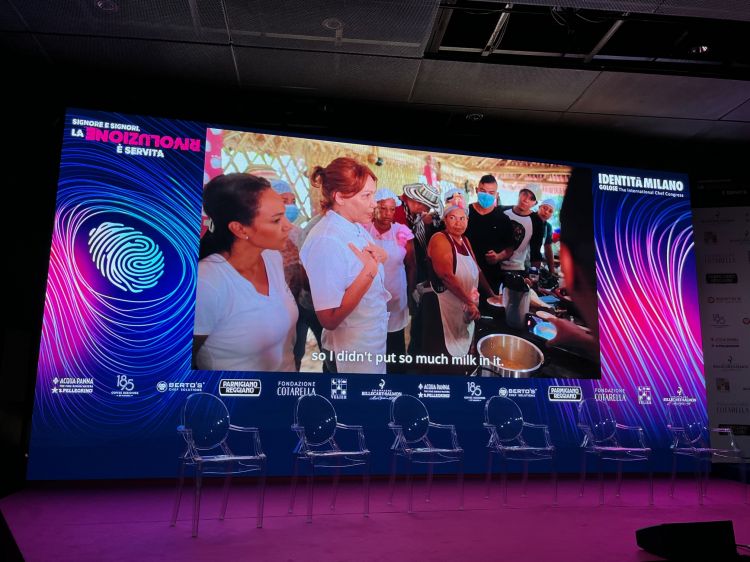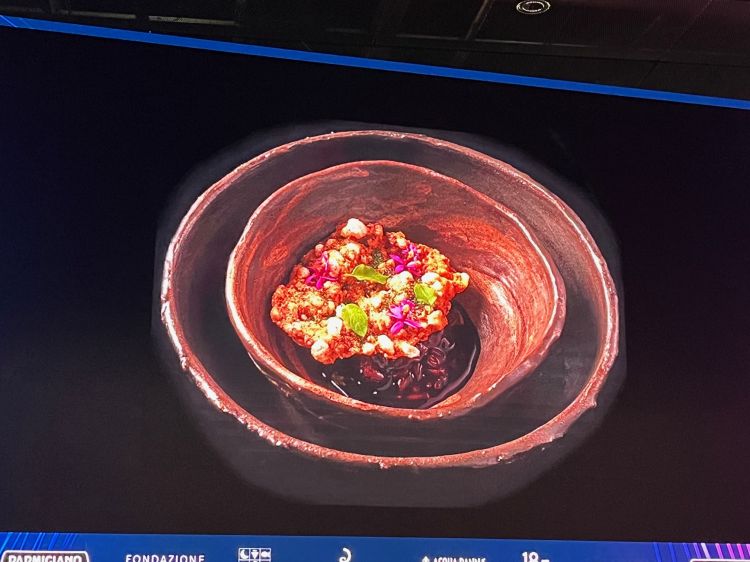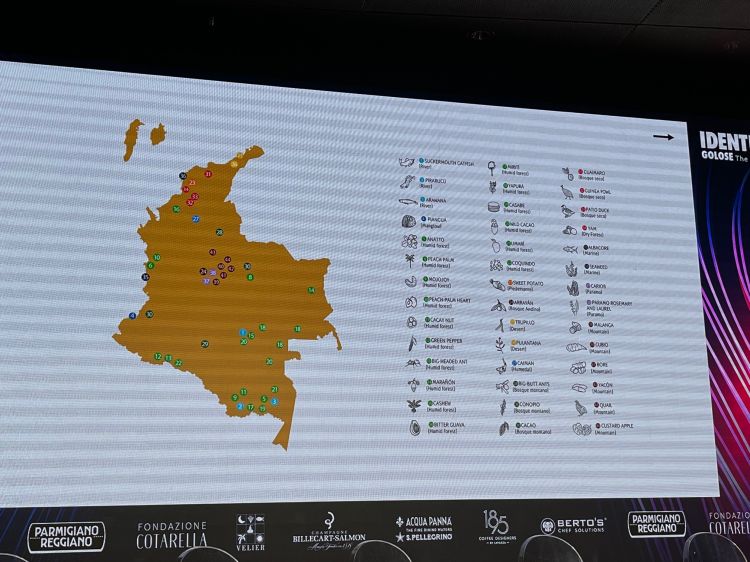The need and desire for the world to be aware of the importance of Colombia for the 'health' of the planet. Just think of the issue of deforestation of the tropical forest and the savage exploitation of the land, which endanger the lives of us all.
The work of Leonor 'Leo' Espinosa and her daughter Laura Hernández is to shed light on the 400 indigenous communities that inhabit this area, which must be protected because, says the chef, “they know ancestral medicine, very ancient recipes, they know how to protect plants and use them for food or wellness. These are teachings that cannot be lost.”
“The Amazon belongs to the world and the future of the planet depends on saving it,” says the chef presented on stage by Gabriele Zanatta, “We are all part of the solution."
Second only to Brazil for biodiversity, Colombia is a magical place that combines the Amazon rainforest, the desert and the Caribbean coast. Chef Espinosa is the spokesperson for millions of people from Africa's indigenous communities who for years have been hidden away and have had no voice. "And no one like Leo Espinosa can tell all this," says Zanatta.
It all starts with Association Funleo, a foundation that claims Colombian identity, culture and gastronomy from indigenous traditions.
“I had just opened a restaurant with Colombian cuisine and I realised the possibility of generating wealth through biodiversity. I realised that I could do more,” says Espinosa. “From there, we started to organise a series of gastronomic workshops in Colombia - as many as 14 - to make it known, as well as 30 workshops with children to raise their awareness of agricultural sustainability. These innovations have improved the food processes of these communities. Unfortunately, these are areas with great social crises and being able to train cooks and chefs are tools of empowerment, especially for women.”

We continue with project Zotea, dedicated to the Pacific coast, where the chef works with African communities, the bearers of an enormous wealth of identity. It is a community project consisting of a restaurant, a greenhouse and coconut oil production. "It is an incredible initiative that has enormous value for the community and which recounts the dishes of the ancestors such as tapao, a fish during the time of slavery was cooked in banana leaves with its sauce. The mangroves are home to a dense marine fauna that needs to be protected and appreciated,” the video says.
Another important project is Sucre - it has a different flavour, which aims to put on the map a place with as many as four ecosystems, including the Montes de Maria mountains and the city of Cartagena, where there was a strong slave movement. "We are also working on the creation of a gastronomic centre, as we did for Zotea. Here there is a nice mix of indigenous, mestizo population, as well as the community of African descent. The idea is to move away from everyday recipes without losing them. For example, we cook caiman meat flan, with chilli and rice. And then guate, made of large crabs with plantain rice and coconut milk, yam.”

A dish from restaurant Leo
"It is important that people come to see how we cook the food and can taste it themselves. We are surrounded by a unique nature. I have seen people who have very limited resources but who know how to live to the fullest. I have discovered macambo, a dish full of taste and flavours, a mix of bitter sweet and sour. Here there are dozens of types of passion fruit. And then there are guinea pigs, very good. I am here to support Colombia's biodiversity and raise awareness of the problem of disbursal,” says chef Rasmus Munk in the video shown by Espinosa.

These projects culminate and continue through Leo, the restaurant that represents the biodiversity of Colombia, capable of telling unique stories. "We have eliminated the middleman, who was creating an 'error' in the system," says the chef. “We give small producers the opportunity to sell us their goods directly. We work on both the solid food and the liquid part, with sustainable productions of wine and drinks that you can find in the specific space called La sala di Laura. Thank you for the space you have given us in this Congress and see you in Colombia!.”
Translated into English by Slawka G. Scarso